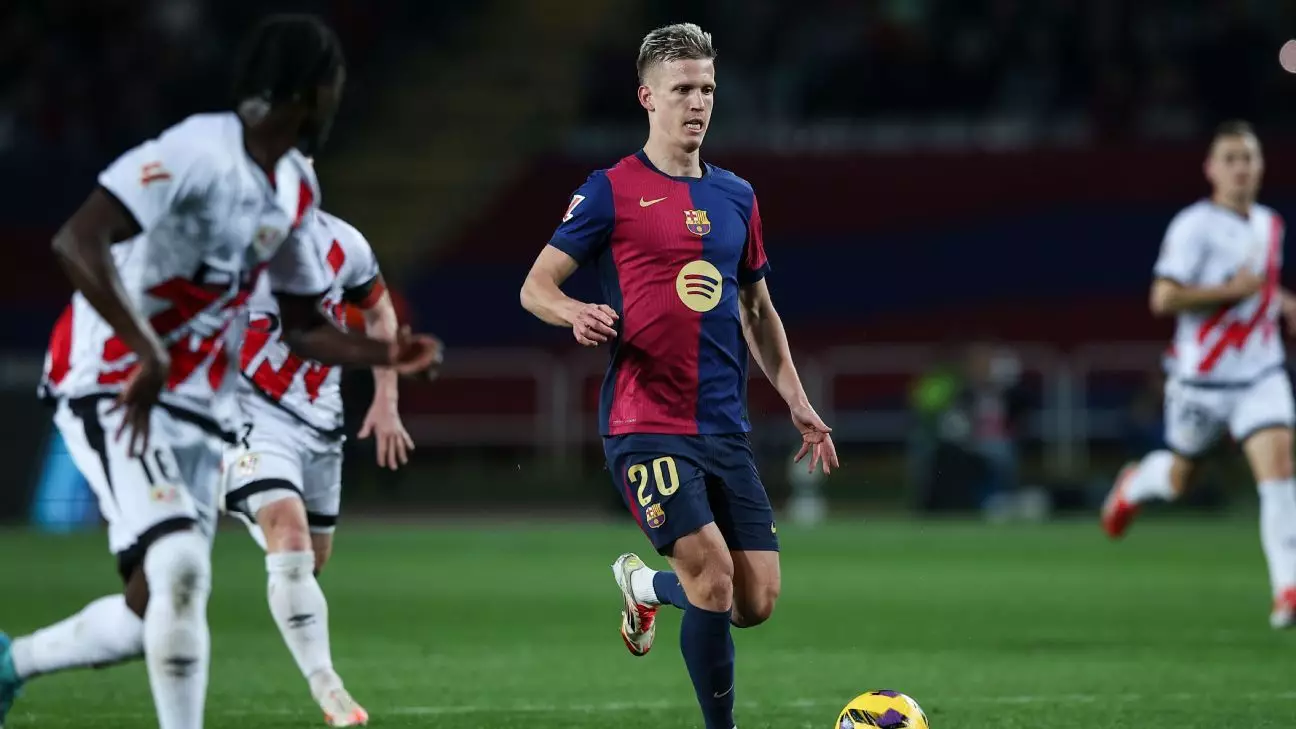The ongoing saga surrounding FC Barcelona has taken a captivating turn as LaLiga contests a controversial ruling by Spain’s sports authority that granted Barcelona the ability to retain two crucial players: Dani Olmo and Pau Víctor. The intrigue lies not just in the realm of sport, but also dives deep into the murky waters of financial compliance and governance within one of football’s most iconic clubs. This situation underscores the growing tension between regulatory bodies, league authorities, and football clubs, highlighting how financial strictures can shape competitive integrity.
In essence, Barcelona was initially denied the opportunity to register Olmo and Víctor due to missed financial compliance deadlines. This ruling seemed to cement LaLiga’s hard stance on financial regulations aimed at ensuring clubs operate sustainably. Yet, the Spanish sports authority’s intervention allowed Barcelona to circumvent this blockade momentarily, spilling over into a legal confrontation with LaLiga. The appeal from LaLiga against this decision signals not just dissatisfaction but a commitment to uphold financial norms even in the face of a club that is currently trying to navigate its own labyrinth of debt and recovery.
The Financial Dynamics at Play
The financial backdrop of this dispute is critically significant. LaLiga has showcased its diligence by raising concerns about Barcelona’s financial dealings, particularly regarding a proposed €100 million deal tied to the redevelopment of Spotify Camp Nou. This spotlight on financial transparency sheds light on the finite line that clubs must walk; balancing competitiveness while adhering to strict fiscal rules. The league has raised alerts about Barcelona’s disclosures after auditors and different accounting practices added layers of complexity to an already convoluted situation.
Moreover, Barcelona’s vehement response to LaLiga’s criticisms is revealing. The club expressed its “surprise and indignation” at what they deemed inappropriate actions from LaLiga for publicly disclosing sensitive financial information. This allegation of leaking confidential details points to a broader issue of trust and ethics within football governance, where clubs must navigate both competition on the field and politically charged relationships off it. The integrity of such reviews is crucial, especially when a club’s financial future hangs in the balance.
The Broader Implications for Football
Beyond the immediate dispute, this situation raises significant questions for the future of football finance — what does it mean for clubs that are on precarious financial ground? LaLiga’s rigid enforcement reflects a rigorous commitment to financial accountability. However, there’s an undeniable necessity for allowing clubs like Barcelona the flexibility to adapt and recover from past mismanagement. The discourse is not simply about Barcelona’s compliance or LaLiga’s strictness; it’s about the overarching ecosystem of European football. Will the structures in place support clubs to rehab financially, or will they drive historic institutions to their knees?
This scenario intensifies the call for unified regulations that can adapt to the complexities of modern football finance without stifling the competitive spirit that draws fans into stadiums. It emphasizes a need for dialogue and collaboration among leagues, clubs, and governance bodies. Navigating such financial intricacies will determine not just individual club successes but the overall landscape of football as it strives for sustainability and growth.

